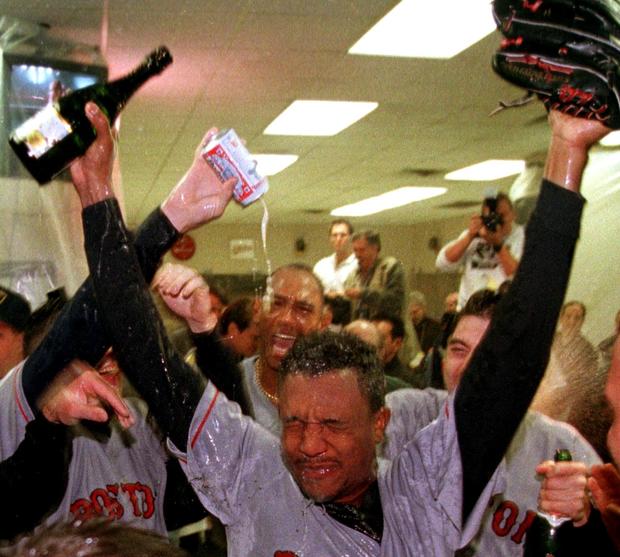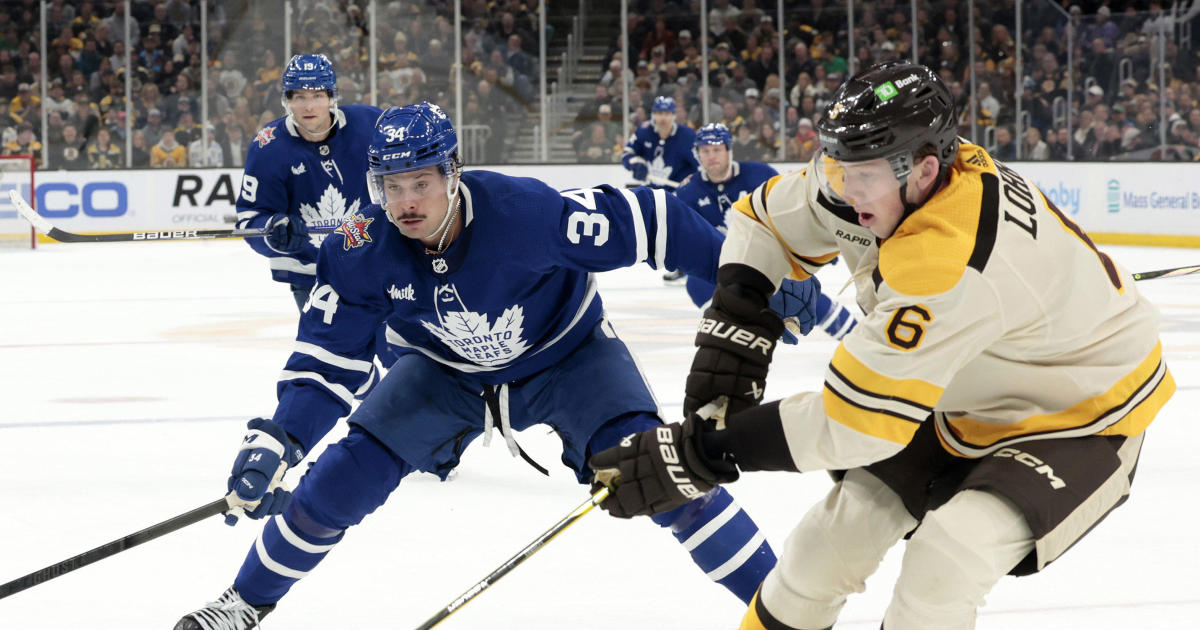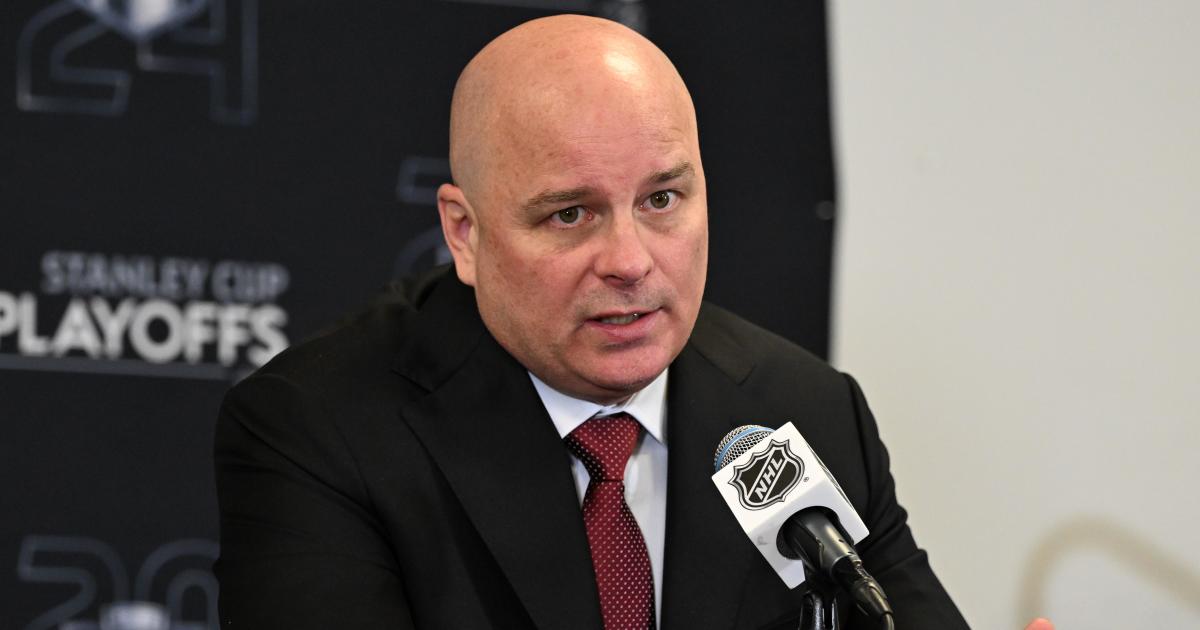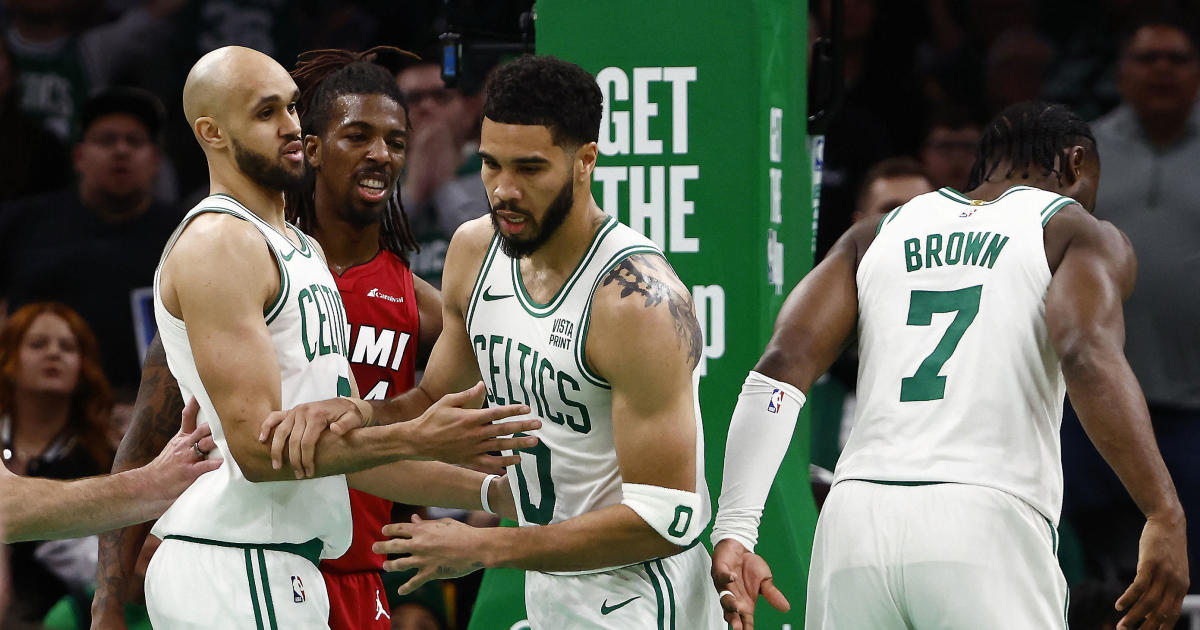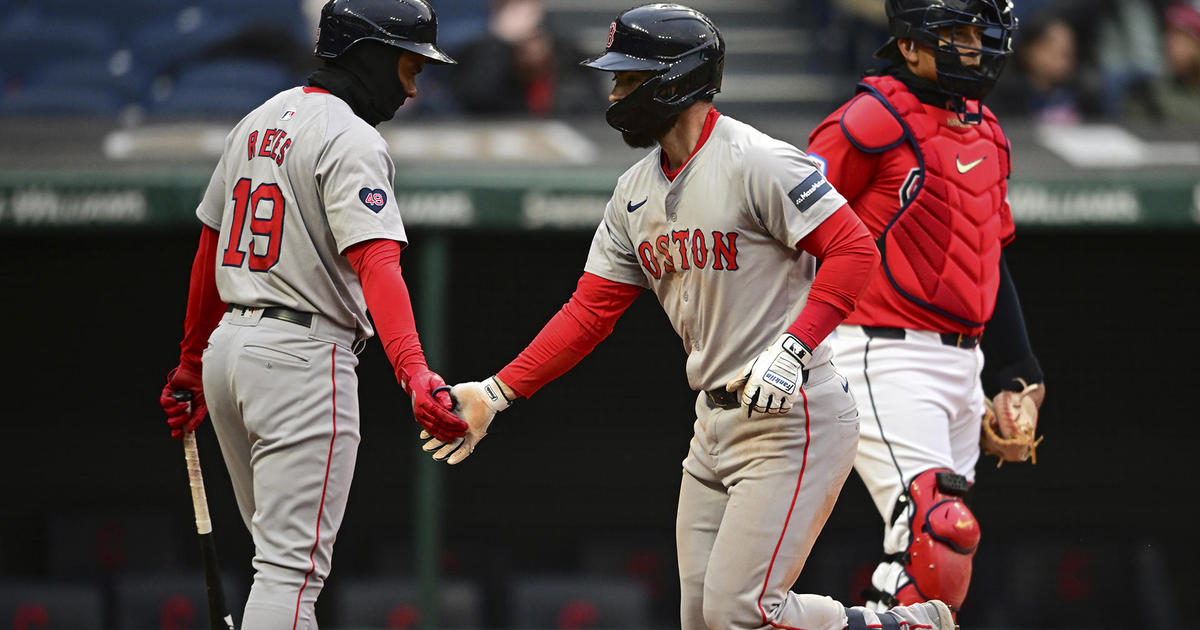Yes, Clayton Kershaw's MVP Award Only Furthers Extent To Which Pedro Martinez Got Robbed
BOSTON (CBS) -- In case you missed it, Dodgers ace Clayton Kershaw was named the Most Valuable Player of the National League on Thursday evening. Kershaw, still just 26 years old, is obviously a transcendent talent, and he is without question worthy of winning the award.
Yet because this is the sport of baseball, where people tend to have the least diverse and least innovative ideas in the world, the debate lives on: Should a pitcher really be able to win the MVP?
The short answer is simple: Yes. Don't be a dummy. There's no more crucial element to the sport of baseball than pitching, and when you're absolutely dominant on the mound, you are impacting the game in a way nobody else can. So yes. Duh. Of course. The Dodgers went 23-4 in games when Kershaw started, good for an .851 winning percentage, and they went 71-64 in games he did not, which is just a .526 winning percentage. The guy's good, OK? He deserved the award. Winning the Cy Young should not preclude him from doing so.
So while the "does a pitcher deserve to win an MVP award?" argument may be tired and foolish, there is but one reason to still believe it to be true: Pedro Martinez got absolutely hosed in 1999, and until history rights that horrific wrong, no pitcher deserves the accolade.
Extreme? Sure. But there aren't enough flashlights in the world to shed the necessary amount of light on this terrible injustice in sports history.
To wit: Pedro Martinez posted these stats in 1999:
213.1 IP, 313 SO, 37 BB, 2.07 ERA, 0.923 WHIP, 23-4 record, 5 CG, 1 SO.
By comparison: Kershaw posted these stats in 2014:
198.1 IP, 239 SO, 31 BB, 1.77 ERA, 0.857 WHIP, 21-3 record, 6 CG, 2 SO.
And here -- Justin Verlander's stats when he won MVP in 2011:
251 IP, 250 SO, 57 BB, 2.40 ERA, 0.920 WHIP, 24-5 record, 4 CG, 2 SO
OK, so you look at Pedro's stats, and you look at Kershaw's stats, and you might think, "Well, gee, Kershaw had a better ERA and WHIP, so what is this injustice of which you speak?"
"Oh, ho, ho," I would reply, licking my chops before taking a deep breath and noting:
--Kershaw pitches in the National League. Which means he faces pitchers. A lot. And pitchers are not quite as good at hitting as designated hitters were in 1999. You know? So ... yeah.
--Also, the AL batting average in 1999 was .275. The average OPS for the AL in 1999 was .786. By contrast, the NL batting average in 2014 was .249, or 26 points lower than the 1999 AL, and the NL OPS in 2014 was .694, 92 points lower than the 1999 AL. Some of that has to do with pitchers batting, some of it has to do with some supplement usage back in '99, but regardless of the reason, there's no doubt that Pedro faced much better hitters in his day.
--Oh yeah, plus this: Pedro stood head and shoulders (and most of the torso) above his peers contemporaries in 1999. His 2.07 ERA was 2.79 runs better than the AL ERA in 1999, and his WHIP was 0.563 points better than the AL average. Kershaw, while very good, posted an ERA just 1.89 runs better than the NL average in 2014 and a WHIP just 0.410 points better than the NL average.
--Take it even further: Kershaw led the NL with a 7.5 WAR, which was .9 wins better than the next-closest NL pitcher, Cole Hamels at 6.6. Johnny Cueto was just behind Hamels with a 6.4 WAR, and Adam Wainwright tallied a 6.1 WAR in 2014.
In 1999, Pedro Martinez led the AL with a 9.7 WAR. The next-closest AL pitcher was a full 3.1 wins worse -- Jamie Moyer at 6.6. Nobody in the American League was even close to Pedro. The gap between Pedro and the next guy was more than triple the gap between Kershaw and No. 2.
So all of those stats put Martinez's pitching feats in perspective, but alone, they don't demonstrate that Pedro deserved the MVP award. This was, after all, the salad days of the steroid era, so it's very possible that a hulking, musclebound slugger tore the cover off the ball all season long en route to earning MVP honors. Right? Well, no.
Ivan Rodriguez won the 1999 AL MVP Award, despite the fact that the two Texas writers with votes selected Rafael Palmeiro as their top choice and ranked Pedro Martinez ahead of Ivan Rodriguez. Odd, but not really, considering Rodriguez's numbers don't really stand out. In fact, compare Rodriguez's numbers in 1999 to the stats from 2014 of Giancarlo Stanton, the NL runner-up for MVP:
1999 Ivan Rodriguez:
144 games played, .332 BA, .558 SLG, .914 OPS, 35 HR, 113 RBI, 29 2B, 125 OPS+
2014 Giancarlo Stanton:
145 games played, .288 BA, .555 SLG, .950 OPS, 37 HR, 105 RBI, 31 2B, 160 OPS+
In the '99 AL, Rodriguez ranked ninth in WAR, seventh in batting average, 10th in slugging percentage, 19th in OPS (19th!) and 11th in home runs.
In the '14 NL, Stanton ranked fifth in WAR, 17th in batting average, first in slugging percentage, second in OPS and first in home runs.
You can argue -- and it wouldn't be very difficult -- that Stanton had a better season in 2014 than Rodriguez had in '99. In fact, you could argue that a handful of players had better seasons in 1999 than Rodriguez.
So why didn't Pedro win the MVP? Of course, it's not breaking news that the New York Post's George King refused to vote for pitchers for the award, so he left Pedro off his ballot completely. So even though Martinez received eight first-place votes and Rodriguez received just seven, Rodriguez edged Martinez in overall voting points, 252-239.
"MVP is for everyday players. Pitchers have their own award," King told his colleague, Tom Keegan, back in '99. (Keegan used his own writing space to write in great detail why his colleague was dead wrong. That doesn't happen enough these days.)
OK, fine, King is a man of principle. Hard to argue against a man who believes something so strongly that he's willing to overlook one of the greatest seasons of pitching in baseball history, right?
Well, again ... no. King voted for two pitchers on his MVP ballot in 1998. Those pitchers? Why, they just happened to be David Wells and Rick Helling, and David Wells just so happened to be a member of the Yankees. And Helling ... well, this was back in the dark ages when leading the league in wins meant a lot to sports writers who didn't watch many out-of-market games, so Helling earned King's vote despite posting a 4.41 ERA and 1.327 WHIP. Nice job with your voting choices there, George King. Rick Helling was clearly more worthy of an MVP vote in '98 than Pedro was in '99. Bang-up job all around.
A sports writer being a hypocrite? No way! Crazy! Alas, sometimes writers talk themselves in circles, and sometimes it changes history.
LaVelle Neal also left Pedro off his ballot for the same reason -- "I just feel that in order to be an MVP you have to be in the battle every day." In the battle! Such cool language, such a stupid thought process. In the battle! Hey, boss, it's baseball here. There's no battle -- and if there were a battle, Martinez would have been the most dominant, commanding field general in the game.
So congratulations to Clayton Kershaw. Let this take nothing away from his accomplishment (though I believe his 7.82 ERA in the postseason may have put a damper on his celebration). He's a great pitcher, and this might be the first of multiple MVPs. Wahoo, hooray for Clayton and all of that.
But the awarding of the MVP to yet another pitcher provides reason enough to recall Pedro Martinez and the great miscarriage of justice in the 1999 MVP race.
Righting the wrong and naming Pedro Martinez as the post hoc 1999 American League MVP should be new commissioner Rob Manfred's first order of business.
(I'm only half-joking.)
(Pedro for president.)
Read more from Michael Hurley by clicking here, or find him on Twitter @michaelFhurley.
MORE SPORTS COVERAGE FROM CBS BOSTON
